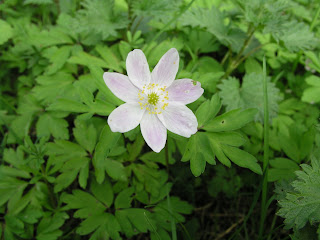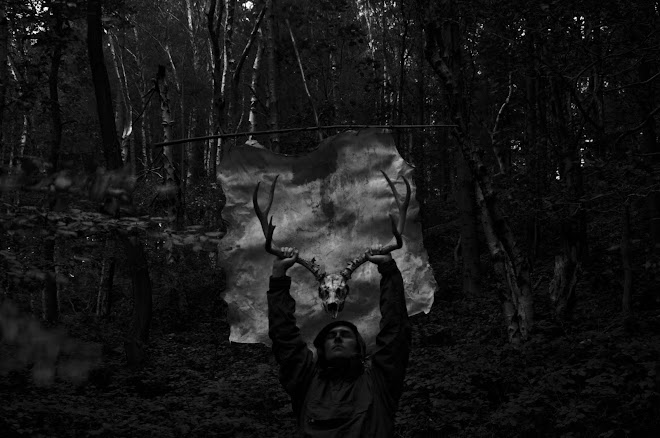skip to main |
skip to sidebar





I had planned to visit the Cheviot Hills in Northumberland but with my day arranged and my maps prepared I awoke in the middle of the night with the desire to see anemones. I have just spent five days in London and while I enjoy the feeling that I am walking the same streets as Doyle, Wilde and Machen the vulgar crowds with their self-aware obsessions and the noisy filth of the city soon becomes tiresome causing the train ride home to the cooler, greener hills to quicken to an irresistible urge.
In the small hours, with my watch glowing on the bedside table, the desire to see anemones filled my mind. I was tired but could not sleep. I ran through all the references to the flower in Dunsany, for whom anemones were a totem of spring and the triumphant resurgence of nature. He wrote about them time and again, as a signum for life and beauty, as a numeral on the clock face of the year by which he ran his life. As I lay waiting for the graying of the dawn I thought about Dunsany’s story Nature & Time, in which the two spirits have a domestic argument on the streets of Coventry (Dunsany seems to have had a special place in the darkest corner of his heart for the industrial cities of the Midlands) and I knew that with the unseasonably warm spring now was the time to find the flowers at their best.
By morning I had abandoned my trip to the hill forts on the Cheviots and set out for a piece of woodland where I knew few other people would trouble to go. I walked amongst fresh green beech leaves, newly sprouted bracken fronds uncoiling from their winter sleep and small clusters of blue dog violet amongst the white wood sorel. And by a small stream, no more than a ditch, on a bank covered in young nettles and brambles, was a patch of wood anemones, their starry flowers blushing pink and white. I sat and listened to chaffinches calling from the tops of trees, the warming sound of early bees on the wing and I forgot everything I knew about London.
Through the streets of Coventry one winter's night strode a triumphant spirit. Behind him stooping, unkempt, utterly ragged, wearing the clothes and look that outcasts have, whining, weeping, reproaching, an ill-used spirit tried to keep pace with him. Continually she plucked him by the sleeve and cried out to him as she panted after and he strode resolute on.
It was a bitter night, yet it did not seem to be the cold that she feared, ill-clad though she was, but the trams and the ugly shops and the glare of the factories, from which she continually winced as she hobbled on, and the pavement hurt her feet.He that strode on in front seemed to care for nothing, it might be hot or cold, silent or noisy, pavement or open fields, he merely had the air of striding on.And she caught up and clutched him by the elbow. I heard her speak in her unhappy voice, you scarcely heard it for the noise of the traffic.
"You have forgotten me," she complained to him. "You have forsaken me here."She pointed to Coventry with a wide wave of her arm and seemed to indicate other cities beyond. And he gruffly told her to keep pace with him and that he did not forsake her. And she went on with her pitiful lamentation.
"My anemones are dead for miles," she said, "all my woods are fallen and still the cities grow. My child Man is unhappy and my other children are dying, and still the cities grow and you have forgotten me!"
And then he turned angrily on her, almost stopping in that stride of his that began when the stars were made.
"When have I ever forgotten you?" he said, "or when forsaken you ever? Did I not throw down Babylon for you? And is not Nineveh gone? Where is Persepolis that troubled you? Where Tarshish and Tyre? And you have said I forget you."
And at this she seemed to take a little comfort. I heard her speak once more, looking wistfully at her companion. "When will the fields come back and the grass for my children?"
"Soon, soon," he said: then they were silent. And he strode away, she limping along behind him, and all the clocks in the towers chimed as he passed.
Lord Dunsany, 1915






